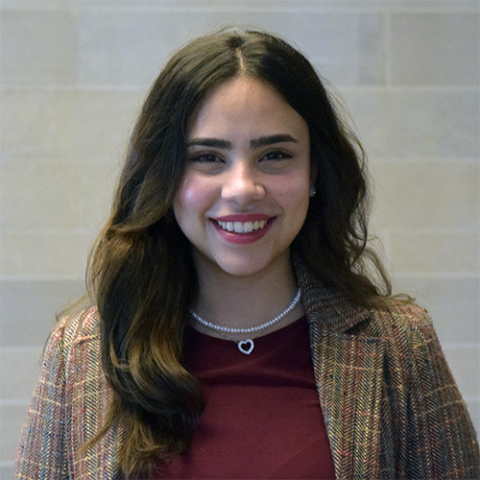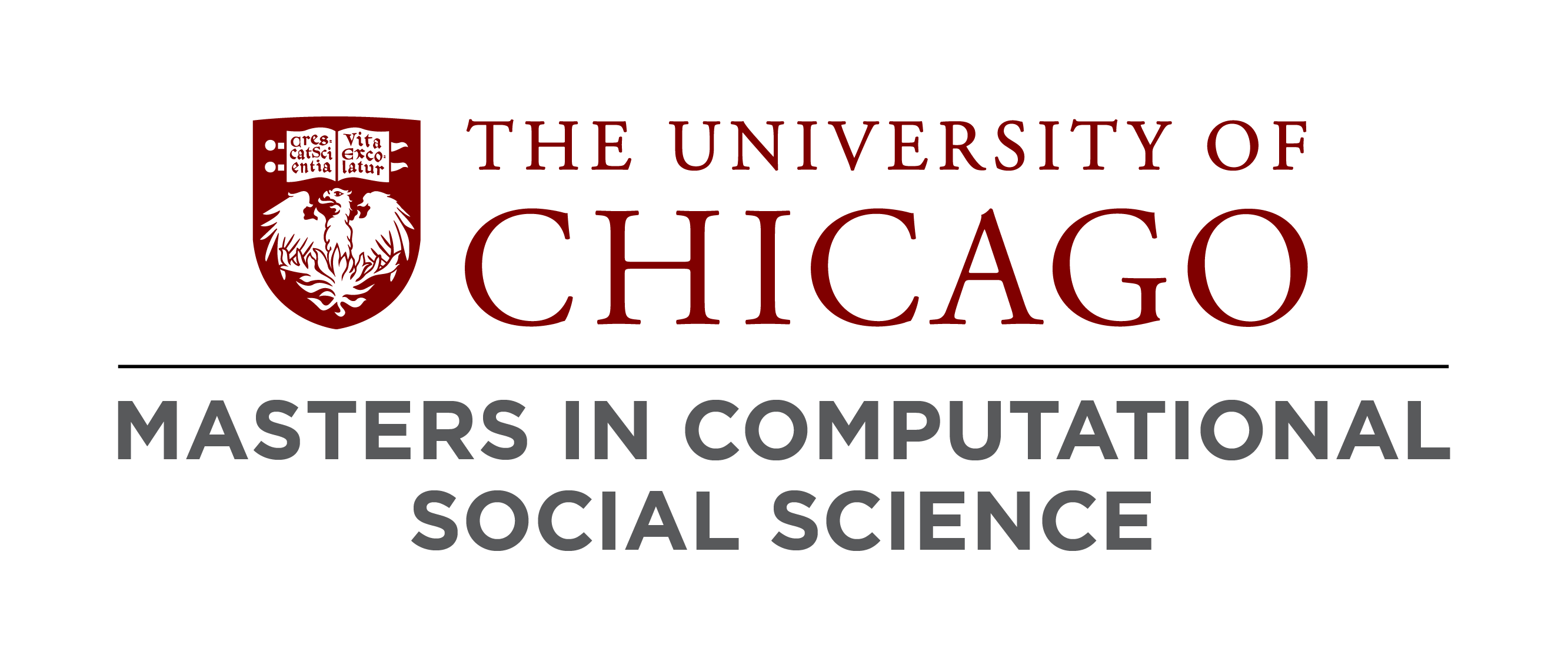Nour Abdelbaki Transcript

Program: Masters in Computational Social Science (MACSS)
Year: Second year
Concentration: Economics
Hometown?
Cairo, Egypt
What type of research are you interested in?
My research interests are centered around exploring how economic policies can be theoretically optimized to strike a balance between social welfare and economic efficiency, especially in the context of developing economies. To achieve this, I employ rigorous quantitative methods and analytical tools, which allow me to dissect complex issues and develop solutions that are both effective and sustainable.
Why did you choose MACSS?
MACSS offers the ideal combination of cutting-edge analytical tools and solid theoretical foundations. The program's unique structure allows me to develop a deep understanding of economic theories while also gaining practical skills in data analysis and computational methods, making it the perfect environment for my academic and research goals.
What question are you investigating in your thesis?
My thesis aims to optimize pricing for Egypt's Universal Health Insurance System (UHIS), a
new and currently developing program. The UHIS is designed to act as an insurance monopolist to improve access to healthcare and prevent catastrophic health spending. However, to achieve these goals without risking financial instability or burdening the government with debt, the pricing of services and insurance policies must be carefully optimized. My research will focus on finding the balance between affordability, quality of care, and financial sustainability.
What support has helped you with your thesis?
As part of the MACSS-Economics cohort, I have benefited greatly from our weekly field-specific workshops. While I spent my first year mainly listening and learning from second-year students and first-year MAPSS-Econ students, these sessions significantly improved my critical thinking skills and inspired me to refine my thesis. I also got to present my thesis idea twice at the end of the year, which gave me valuable feedback and allowed me to spend the summer strengthening the theoretical framework and empirical methodology of my research idea.
Who are you working with to write your thesis?
I have yet to finalize a faculty advisor for my thesis, but I am confident that with the diverse expertise available at UChicago, I will find the perfect fit once my proposal is complete. In the meantime, I am working closely with the three instructional professors, Prof. Victor Lima, Prof. Ryan Fang, and Prof. Joseph Hardwick, in my workshop, who provide valuable feedback and diverse perspectives on my research.
What are your favorite courses in the MACSS program?
So far, my favorite courses have been the MACS 30120’s class sequence. While I had some prior programming experience, this sequence significantly enhanced my problem-solving abilities and introduced me to new skills, particularly in large-scale computing. The course's rigorous challenges pushed me to expand my technical capabilities and apply them to real-world problems, especially with the end-of-class projects, where I got to apply what we learned to topics of my interest that have social science relevance.
What is your favorite thing about the MACSS program?
The tight-knit community, because the smaller cohort size fosters strong bonds among students and ensures close interaction with instructional professors. This supportive environment, combined with the program's academic rigor, makes for an enriching experience at UChicago.
What has been your biggest challenge in the program?
The quarterly system has been the most challenging aspect of the program. The fast pace requires continuous adaptation and time management. However, the faculty and fellow students are incredibly understanding and supportive, which makes navigating these challenges much more manageable. Once I developed a good routine, I found the challenges to be rewarding as they pushed me to achieve more.
Why did you choose UChicago?
I chose UChicago for its unparalleled academic rigor, focus on a strong theoretical foundation, and diversity of thought, coupled with classes that have a focus on practical applications. The opportunity to take classes across various departments and professional schools, such as Booth School of Business and Harris School of Public Policy, allows me to explore a wide range of interests and broaden my academic horizons.
What’s it like living in Chicago?
Living in Chicago is an exciting experience! The city offers a wealth of cultural and recreational activities, many of which are free. From the Chicago Jazz Festival in late August to early September, to free orchestra performances in Millennium Park, there's always something happening. Exploring the city's diverse neighborhoods, like Lincoln Park, Old Town, The Loop, and Pilsen, has been a highlight of my time here thus far.
What are your career aspirations upon graduating from the MACSS program?
I'd like to pursue a PhD in Economics, where I can continue conducting research at the intersection of policy and economic theory. My goal is to contribute to the development of evidence-based policies that can have a meaningful impact on society.
What advice would you give to someone thinking about applying to UChicago?
My advice for anyone considering applying to UChicago is to embrace the challenge and rigor that the university is known for. UChicago is a place where intellectual curiosity thrives, and the opportunities for interdisciplinary learning are vast. Take advantage of the flexibility to explore courses across different departments and professional schools, as this will broaden your academic perspective and enrich your research. Also, don't underestimate the value of the close-knit community within programs like MACSS, where the support from peers and faculty can greatly enhance your experience.
What is one invaluable experience you feel UChicago, and MACSS provided thus far? The opportunity to engage deeply with both theory and application in economics. The blend of rigorous coursework and practical research has allowed me to develop a strong foundation in economic theory while also gaining hands-on experience with the latest quantitative methods. Additionally, the program’s close-knit community has fostered enriching discussions and collaborations, which have been instrumental in shaping both my personal and academic growth.
 THE UNIVERSITY OF CHICAGO
THE UNIVERSITY OF CHICAGO

